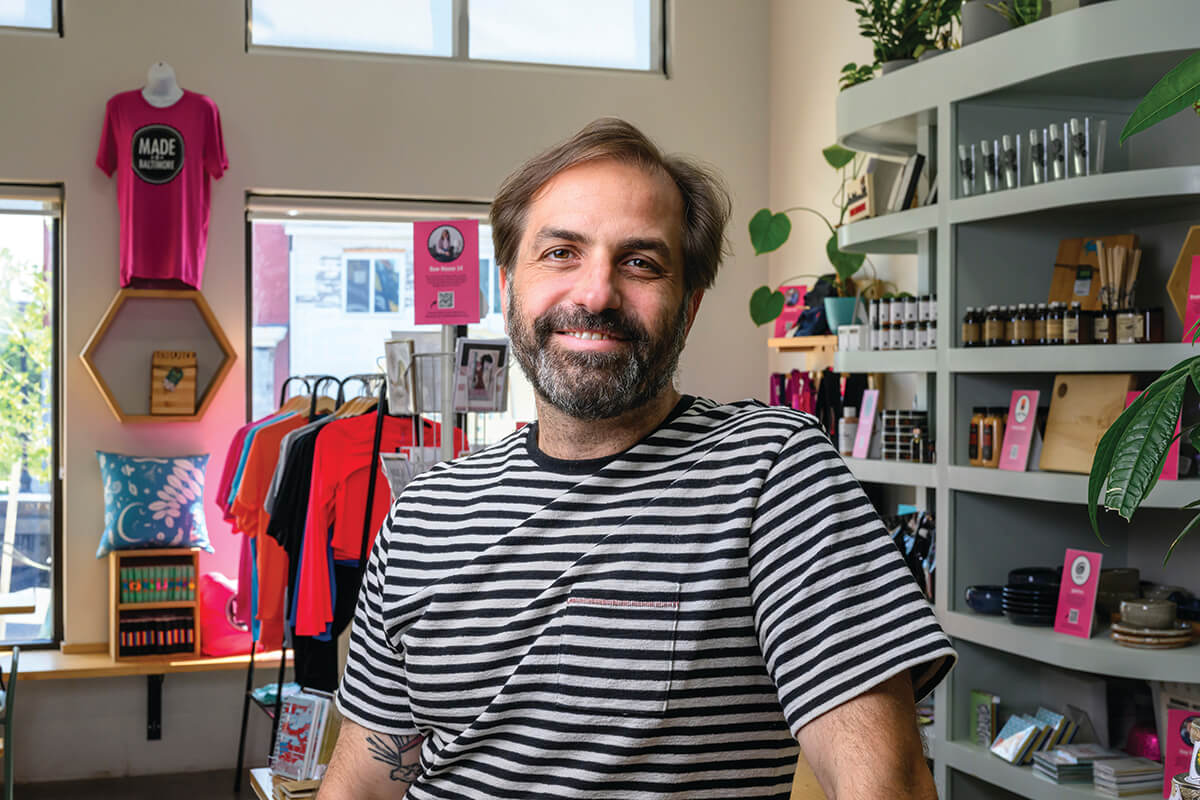GameChangers
Andy Cook is Making “Buy Local” Part of the Community Consciousness
The executive director of Made In Baltimore works daily to promote and support Baltimore-based makers and manufacturers.

Andy Cook was made in Baltimore. (Well technically Towson but he grew up hanging out in, and inspired by, the city.) But what led him to take a job as the executive director of Made In Baltimore, a Baltimore Development Corporation program that supports local makers and manufacturers, was a winding road.
A job at the Baltimore City Office of Sustainability brought him back to his hometown. He was tasked with fostering a variety of green businesses that all had one thing in common—they needed industrial-zoned land to operate. Cook created a database of both vacant industrial land and industrial buildings that met—and eventually exceeded—the needs of the green business community, which led to the question: Now that we know where all these properties are, what do we do with them?
“I started talking to makers around town and was like, ‘How can the city help connect you with available real estate now that we’ve gotten this database created?’”
The answer from many of them was, they needed more customers before they could occupy the space. In other words, they needed to grow their businesses.
“How do we shine a light on these companies to help promote them and help them get a bigger audience so that they can grow and become those tenants that are addressing vacancy blight?” Cook wondered. That’s how Made In Baltimore was born in 2018.
First there were pop-ups (with an estimated 3,000 shoppers each season), workshops, business certifications, and now a temporary brick-and-mortar spot on York Road inside HEX Superette in Govans.
Cook works daily to promote and support Baltimore-based makers and manufacturers and push the “Buy Local” movement in the city. So far, Made In Baltimore has supported over 300 product-based businesses through retail, business development programs, and media campaigns including look books and social media accounts. Their annual retail concepts have generated over $200,000 in sales revenue for local makers.
Cook’s ultimate goal is to make buying local such a fully ingrained consumer habit that his program becomes obsolete.
“Before Made In Baltimore came around, nobody was really talking about Baltimore’s maker economy or the maker scene,” says Cook. “Now buying local is in the conversation. We see institutions wanting to do it, we see the public wanting to do it, and we see retailers wanting to do it. We have successfully managed to get that idea into the public consciousness in a way that wasn’t there before.”